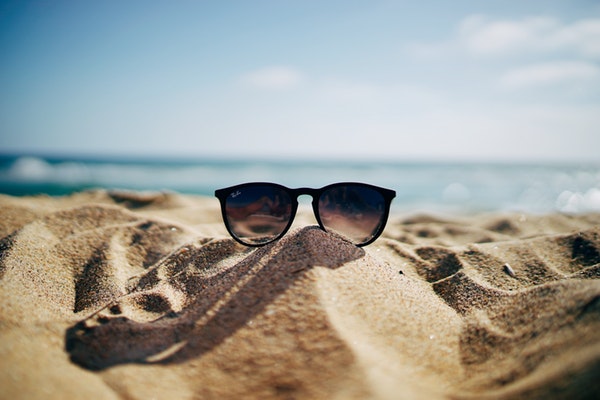
0800 377 7507
Get in touchTop tips to choosing sunglasses!
We take care to slather our children and family with the right SPF protection, but do you actually know if you are protecting your family potential sun damage? Children’s eyes are particularly sensitive and vulnerable to UV rays and over three quarters of a person’s lifetime exposure occurs before the age of 18. So, it’s vital to choose the right sunglasses for your family and don’t forget to make sure you and your partner are protected adequately too. Here are some top tips to choosing sunglasses from the professional domestic house cleaners, MOLLY MAID, to help you on your way.
UV Protection
Did you know that you can’t see or feel UV radiation from the sun. In small doses it can be beneficial boosting Vitamin D level, but too much can cause sunburn, skin cancer and damage to your eyes.
- Check the label: when buying sunglasses read the label carefully so, ensure that the sunglasses block 100% of both UVA and UVB rays? They should also carry the CE mark.
- Lens colour: It is a myth that lens colour an impact on UV protection. UV protection can be provided in the form of a clear coating on any lens, no matter the hue, and darker lenses cause pupils to dilate, which makes eyes more vulnerable to UV rays. So, if you’re keen on a pair of darker shades, make sure they come with adequate UV protection. Otherwise you could be doing more harm than good. That doesn’t mean that lens colour isn’t important. A darker lens will filter out bright light, helping you to see in certain conditions. Different tints can also sharpen contrast and heighten your vision, which can be good when playing sport etc. Lens colour is generally rated from 0-4, 0 being clear, 4 being the darkest.
- Watch for cataracts: Too much UV light can cause cataracts as well as destroying the retina which is the lining at the back of your eyes that helps you see clearly. It would even lead to the tissue growing over your eyeball potentially too.
- Thickening of tissue: UV light can cause changes in cells that lead to skin cancer and although, it may not lead to cancer in your eyes, but it can thicken tissues around them and cause discomfort.
- Proper Fit: A pair of sunglasses that doesn’t fit well can let UV rays seep onto your skin and into your eyes. They should not touch eyelashes, but they should not sit very far out.
- Aesthetics: When selecting a pair of sunglasses, keep in mind the shape of the frames. If the glasses sit too far from your face, they’ll let UV rays in on the sides. Wraparound sunglasses and sunglasses that sit comfortably close to your face will provide the best protection. You should also consider how much of your face your sunglasses cover. The skin on your upper and lower eyelids is delicate and should be protected at all times. One of the most common locations for skin cancer to appear is the eyelid.
- Contact lenses: Some contact lenses will have UV protection, some won’t, so check the packaging or speak to your optometrist to be sure. However, don’t forget that, even if your contact lenses have a UV block, they will only cover a certain area of your eye – the area outside this, usually the white of the eye and the eyelids, are still vulnerable to UV damage. So, it is advisable to wear sunglasses too.
- Polarisation: Polarised lenses are great for reducing glare of light reflected off surfaces such as water, snow, the road, or even the bonnet of your car. Opting for polarised lenses will help you see better and reduce eye strain.
